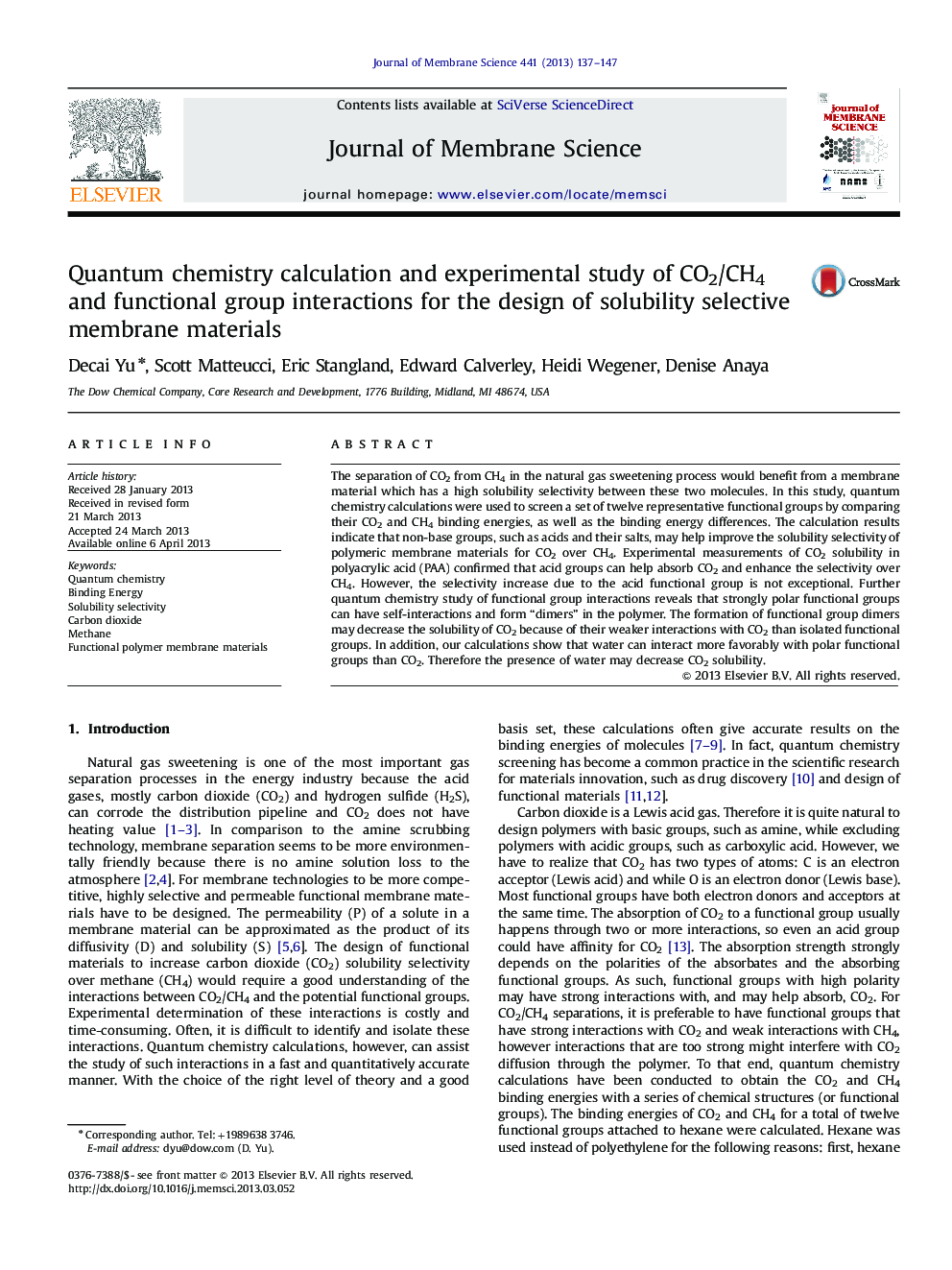| Article ID | Journal | Published Year | Pages | File Type |
|---|---|---|---|---|
| 633996 | Journal of Membrane Science | 2013 | 11 Pages |
Abstract
The separation of CO2 from CH4 in the natural gas sweetening process would benefit from a membrane material which has a high solubility selectivity between these two molecules. In this study, quantum chemistry calculations were used to screen a set of twelve representative functional groups by comparing their CO2 and CH4 binding energies, as well as the binding energy differences. The calculation results indicate that non-base groups, such as acids and their salts, may help improve the solubility selectivity of polymeric membrane materials for CO2 over CH4. Experimental measurements of CO2 solubility in polyacrylic acid (PAA) confirmed that acid groups can help absorb CO2 and enhance the selectivity over CH4. However, the selectivity increase due to the acid functional group is not exceptional. Further quantum chemistry study of functional group interactions reveals that strongly polar functional groups can have self-interactions and form “dimers” in the polymer. The formation of functional group dimers may decrease the solubility of CO2 because of their weaker interactions with CO2 than isolated functional groups. In addition, our calculations show that water can interact more favorably with polar functional groups than CO2. Therefore the presence of water may decrease CO2 solubility.
Related Topics
Physical Sciences and Engineering
Chemical Engineering
Filtration and Separation
Authors
Decai Yu, Scott Matteucci, Eric Stangland, Edward Calverley, Heidi Wegener, Denise Anaya,
